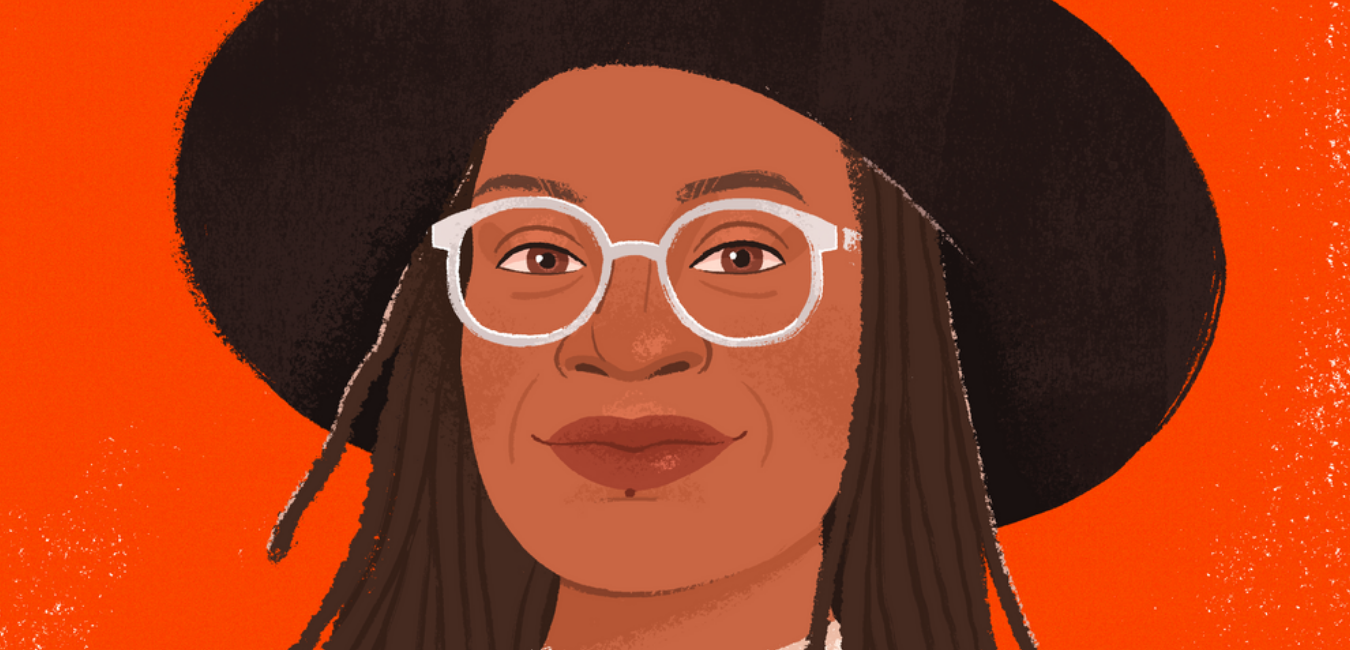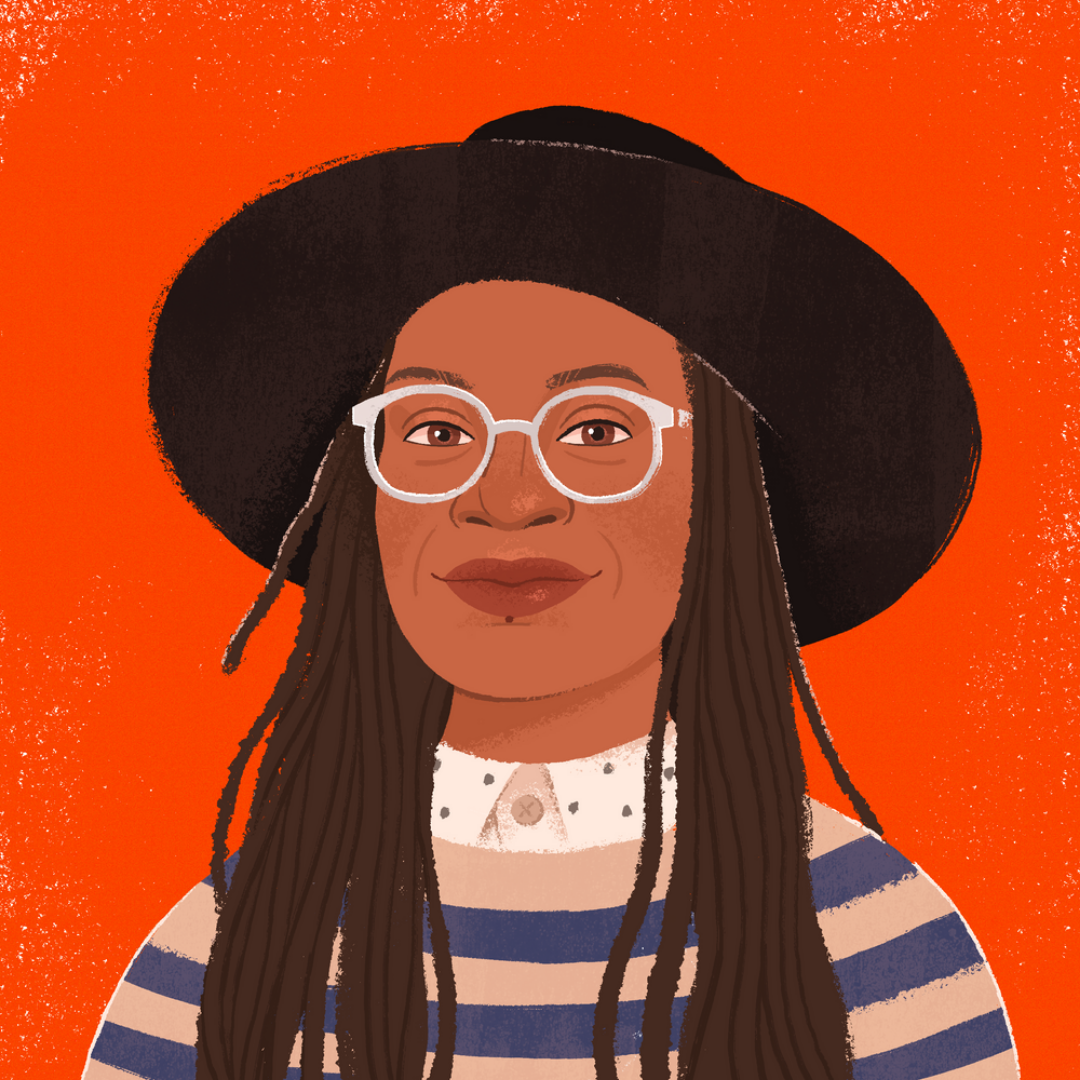
CRUX
Albuquerque, New Mexico. Co-op founder & champion for Black artists. Digital events magician. Zebras Unite founding member.
A Zebra is
… someone who is constantly questioning the status quo. As Zebras, we recognize that we are operating within systems that just don’t work for us. And there comes a moment for each of us where we recognize that somebody needs to fix this and then you realize… “someone” is you!
An economy that works for all
The data proves that the economy is not currently a place that works for most people. In fact, the data shows that the status quo is in favor of people who have always had a leg up. That’s where the status quo is broken and we need to step on to change direction.
Co-creation and accountability: The community of the future
We throw the term “community” around a lot these days without a true understanding of what it entails. I hope that in the future, we’ll have an actual community. True community necessarily has elements of co-creation and accountability. These two are core to the company I’m building, CRUX, and the communities that I like to be in.
Being honest with ourselves
I would love to see us normalize the idea that institutions and organizations do not have to exist in perpetuity.
It’s ok to plan to exist for three or five or ten years — that’s good enough. If you recognize or even embrace that you might not be around forever, you can leverage very different strategies for change as compared to if you were building something that you want to exist forever.
A call to philanthropic funders
I would love to see institutions think differently about how to give, philanthropic institutions in particular. We spend a lot of time talking about venture capital markets, but for the most part, most of us are not ever going to access venture capital. That’s just the reality. For many people of color, the only time we access a large sum of money is when we’re 18 years old and they give us loans to go to school. So I would love to see philanthropic institutions step up and not require underrepresented founders to have to start a 501C3 to be able to access that funding, because nonprofits are incredibly restrictive entities in terms of the type of capital you can access.
We spend a lot of time talking about venture capital markets, but for the most part, most of us are not ever going to access venture capital.
I would love to see recoverable grants and more debt capital go to startup entrepreneurs.
I’d love to see more foundations using expenditure review as a means of giving to impactful, non-tax exempt organizations.
There are all these mechanisms that are beyond grant or equity investments. I wish we could get a full picture of all the ways in which you could deploy investments and capital into the communities that need it the most.
Creating meaningful gatherings virtually: CRUX
CRUX is a cooperative of Black artists working in immersive storytelling. We started off working in virtual reality and augmented reality; before Spring 2020 we really were a community more than anything else. Over the last year, we’ve coalesced into a real worker ownership model through which we provide service-based organizations that are mission-aligned, like Zebras Unite, with strategy and consultation in the digital content realm.
We were formed to think about how to carve out a niche for Black artists in XR, which is an industry that isn’t mature yet. I’m proud that the foremost organization for Black creatives in the space is a cooperative that is ultimately building a distribution pipeline for Black artists to be able to be paid equitably for their intellectual property. We’re helping Zebras think about how to convene and gather digitally. As an international community, building that digital muscle is really important. It makes it possible to gather more frequently. As we are looking at a decade or so of rolling virus limitations, our goal is to create digital spaces that give people agency, are fun and interactive, and allow for close contact at scale.
Personally, I try to make what’s possible seem achievable. CRUX is working in digital spaces now. We had been talking about this for a long time but people thought we were crazy and that it wouldn’t stick. Then COVID-19 broke out and suddenly everybody had to start thinking about digital life. Obviously, I’m not excited about the virus but I am excited that it’s helped people understand the possibility of gathering online. We’ve seen that the virtual possibilities have brought a wider swath of the American population, and the global population, into conversations that probably would have never happened otherwise. Our mission at CRUX is to build experiences. We bring people online in ways that are really attractive and appealing to them, and we make them accessible.
What you have to know is that I’m not a coder. People love hearing that I don’t code and yet I work in tech. What’s more, I build experiences without need to code. I think it makes it seem more achievable.
How can we support you?
There is an education gap that I hope that Zebras can jump into. Co-ops have a marketing problem and I think we can do a lot to demystify what it means to be a co-op and, consequently, fuel the entire co-op movement.
One question for the community
What’s in your suitcase?
You’ve been carrying around a suitcase of stuff: baggage, habits, things you like to do, things you don’t like to do, for your whole life. If you can be anyone that you want to be after the pandemic – and I firmly believe that we can all change and evolve – what’s one thing that you’ve been carrying around forever that’s never going back in your suitcase?
Shout-out
Check out the Solidaire Network! They’re doing a lot of work to support BIPOC communities right now.

Lauren Ruffin, CRUX
Albuquerque, New Mexico, USA
Co-op founder and champion for Black artists. Digital events magician. Zebras Unite founding member.